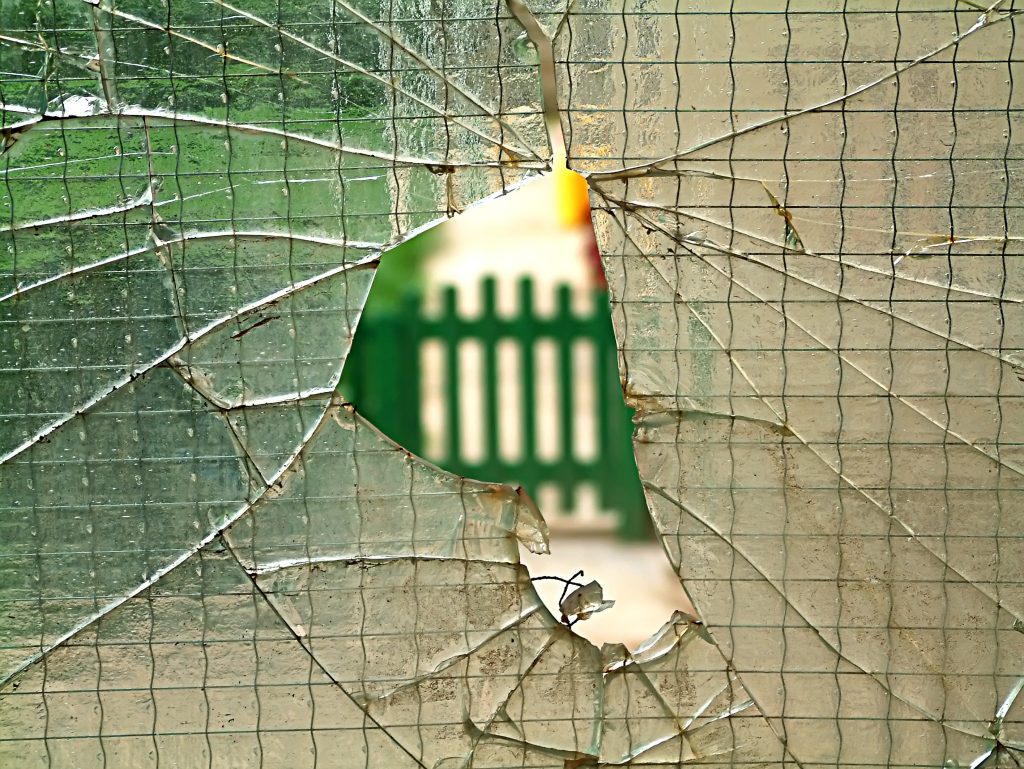 In a lawsuit, a client’s claims need to be monitored every step of the way. If an issue is revived in an appeal, an attorney must keep track of it and reinforce it at each new representation. If an attorney doesn’t continue to assert a claim, a court might think the party abandoned the issue and the court will not review it on appeal. Keeping these claims alive is not a major undertaking, but as Glenn E. Alphonse, Jr. learned in his recent case, even the slightest misstep in this area can make or break an outcome.
In a lawsuit, a client’s claims need to be monitored every step of the way. If an issue is revived in an appeal, an attorney must keep track of it and reinforce it at each new representation. If an attorney doesn’t continue to assert a claim, a court might think the party abandoned the issue and the court will not review it on appeal. Keeping these claims alive is not a major undertaking, but as Glenn E. Alphonse, Jr. learned in his recent case, even the slightest misstep in this area can make or break an outcome.
In 2010, Mr. Alphonse defaulted on his mortgage, so Arch Bay Holdings, LLC began foreclosure proceedings on his house. Alphonse filed a lawsuit against Arch Bay Holdings, LLC under the Louisiana Unfair Trade Practices Act (LUTPA) and Federal Debt Collection Practices Act (FDCPA). After various motions and appeals, the District Court dismissed Alphonse’s case. Alphonse appealed this ruling to the Fifth Circuit Court of Appeal.
A central issue to Alphonse’s appeal was whether federal question jurisdiction existed. Federal question jurisdiction allows a plaintiff to proceed with a case in federal court; it is what gives the official power to a court to make legal decisions and judgments. The Fifth Circuit first examined whether Alphonse waived his right to certain claims during the litigation of his case which gave rise to federal question jurisdiction. If Alphonse waived his rights to these claims then he waived his right to proceed under federal question jurisdiction. Waiver of Alphonse’s federal claims during the appeals process meant that those claims could not be brought before the District Court for consideration. Alphonse admitted that he waived some of his federal claims during the appeals process, but claimed that he left one claim intact and argued that he still possessed federal question jurisdiction.
 Louisiana Personal Injury Lawyer Blog
Louisiana Personal Injury Lawyer Blog


 We enter into contracts all the time without putting the agreement in writing; we form contracts when we buy a cup of coffee, when we shop online, etc. Some types of contracts, however, are required by law to be in writing. Kevin and Monica Schmidt (the Schmidts) learned this the hard way when they could not enforce an oral agreement to frack oil wells in Beauregard Parish.
We enter into contracts all the time without putting the agreement in writing; we form contracts when we buy a cup of coffee, when we shop online, etc. Some types of contracts, however, are required by law to be in writing. Kevin and Monica Schmidt (the Schmidts) learned this the hard way when they could not enforce an oral agreement to frack oil wells in Beauregard Parish. Sometimes we don’t have the best neighbors. For example, a neighbor might block access to your land, arguing that it is, in fact, the neighbor’s land you traverse on a daily basis. When such a dispute arises, get a good real estate attorney. If ingress to a piece of your property requires you to pass over someone else’s land, you might need to seek an easement. An easement is simply a right of passage through someone else’s land. This can be done in one of three ways: (1) by agreement, (2) by traditional or historic use, or (3) by necessity. In a recent case, the parties fought over the right to pass over a gravel road in Webster Parish, Louisiana. In the case, the court discusses its discretion in deciding whether an easement is necessary.
Sometimes we don’t have the best neighbors. For example, a neighbor might block access to your land, arguing that it is, in fact, the neighbor’s land you traverse on a daily basis. When such a dispute arises, get a good real estate attorney. If ingress to a piece of your property requires you to pass over someone else’s land, you might need to seek an easement. An easement is simply a right of passage through someone else’s land. This can be done in one of three ways: (1) by agreement, (2) by traditional or historic use, or (3) by necessity. In a recent case, the parties fought over the right to pass over a gravel road in Webster Parish, Louisiana. In the case, the court discusses its discretion in deciding whether an easement is necessary.  The importance of adhering to required timelines and District Court orders could not be overstated. A failure to comply with court deadlines can result not only in your claims being dismissed but also a heavy fine. Former inmates at Richwood Correctional Center (“RCC”) learned that the hard way on appeal in the Louisiana Second Circuit of Appeal.
The importance of adhering to required timelines and District Court orders could not be overstated. A failure to comply with court deadlines can result not only in your claims being dismissed but also a heavy fine. Former inmates at Richwood Correctional Center (“RCC”) learned that the hard way on appeal in the Louisiana Second Circuit of Appeal. Filing and pursuing a lawsuit is no small task. Besides the often-significant monetary aspect, a plaintiff (the party filing the lawsuit) should be prepared for a large time commitment and effort in providing the necessary evidence to support their case. Good lawyers know how to aid their clients in gathering evidence and navigating the logistical aspects of a lawsuit as efficiently as possible. Litigation can sometimes take years, but a seasoned lawyer will know how to provide the motivation clients need to successfully pursue their claims and reach recovery. In a recent case out of Zachary Louisiana, the plaintiff filed a lawsuit he was simply not prepared to effectively maintain.
Filing and pursuing a lawsuit is no small task. Besides the often-significant monetary aspect, a plaintiff (the party filing the lawsuit) should be prepared for a large time commitment and effort in providing the necessary evidence to support their case. Good lawyers know how to aid their clients in gathering evidence and navigating the logistical aspects of a lawsuit as efficiently as possible. Litigation can sometimes take years, but a seasoned lawyer will know how to provide the motivation clients need to successfully pursue their claims and reach recovery. In a recent case out of Zachary Louisiana, the plaintiff filed a lawsuit he was simply not prepared to effectively maintain. The goal of marriage is often “happily ever after.” Sometimes, it does not end up working out that way. What happens when a child born during a marriage is the result of an affair? What legal rights does the real father have towards establishing that the child is his? The following case out of Acadia Parish demonstrates Louisiana’s jurisprudentially-created doctrine of avowal.
The goal of marriage is often “happily ever after.” Sometimes, it does not end up working out that way. What happens when a child born during a marriage is the result of an affair? What legal rights does the real father have towards establishing that the child is his? The following case out of Acadia Parish demonstrates Louisiana’s jurisprudentially-created doctrine of avowal. Ever wondered about the seemingly daunting world of contracts: the myriad of pages and often boring mechanical reading, not to mention those terms and conditions written in legalese? For most of us, not really. That’s for sure. But sometimes contractual disputes can be interesting. Ever hear the saying don’t mix business with pleasure? Well in a recent case, the Louisiana Court of Appeal was called upon to rule upon the terms of a settlement agreement that prohibited the parties from making disparaging or negative comments about each other.
Ever wondered about the seemingly daunting world of contracts: the myriad of pages and often boring mechanical reading, not to mention those terms and conditions written in legalese? For most of us, not really. That’s for sure. But sometimes contractual disputes can be interesting. Ever hear the saying don’t mix business with pleasure? Well in a recent case, the Louisiana Court of Appeal was called upon to rule upon the terms of a settlement agreement that prohibited the parties from making disparaging or negative comments about each other. As the adage goes, there are two sides to every story and when it comes to lawsuits, the details of those stories can make the difference between a courtroom success and a case never making it to trial. A case arising out of Mandeville, Louisiana is the perfect example of just how important the details of a story can be.
As the adage goes, there are two sides to every story and when it comes to lawsuits, the details of those stories can make the difference between a courtroom success and a case never making it to trial. A case arising out of Mandeville, Louisiana is the perfect example of just how important the details of a story can be.  The law often hinges on technicalities, which is why technical accuracy is critical in ensuring that all parties to a lawsuit have a fair and adequate understanding of the issue and that courts operate efficiently. Despite this importance, courts do not want justice to be skirted on the sole basis of a technical error. The Second Circuit Court of Louisiana emphasized this sentiment when it allowed a woman to recover damages for battery, despite the fact that she only alleged negligence in her pleadings. The court was able to do so under Louisiana’s fact-pleading system which allows recovery as long as the facts necessary to establish a claim are pled.
The law often hinges on technicalities, which is why technical accuracy is critical in ensuring that all parties to a lawsuit have a fair and adequate understanding of the issue and that courts operate efficiently. Despite this importance, courts do not want justice to be skirted on the sole basis of a technical error. The Second Circuit Court of Louisiana emphasized this sentiment when it allowed a woman to recover damages for battery, despite the fact that she only alleged negligence in her pleadings. The court was able to do so under Louisiana’s fact-pleading system which allows recovery as long as the facts necessary to establish a claim are pled.  Discrimination has always been a controversial topic in America and especially salient in the workplace context. The following case arises out of a situation where an employee felt that she was discriminated against based on her race and disability. She sued in federal court based on federal and state discrimination laws.
Discrimination has always been a controversial topic in America and especially salient in the workplace context. The following case arises out of a situation where an employee felt that she was discriminated against based on her race and disability. She sued in federal court based on federal and state discrimination laws.